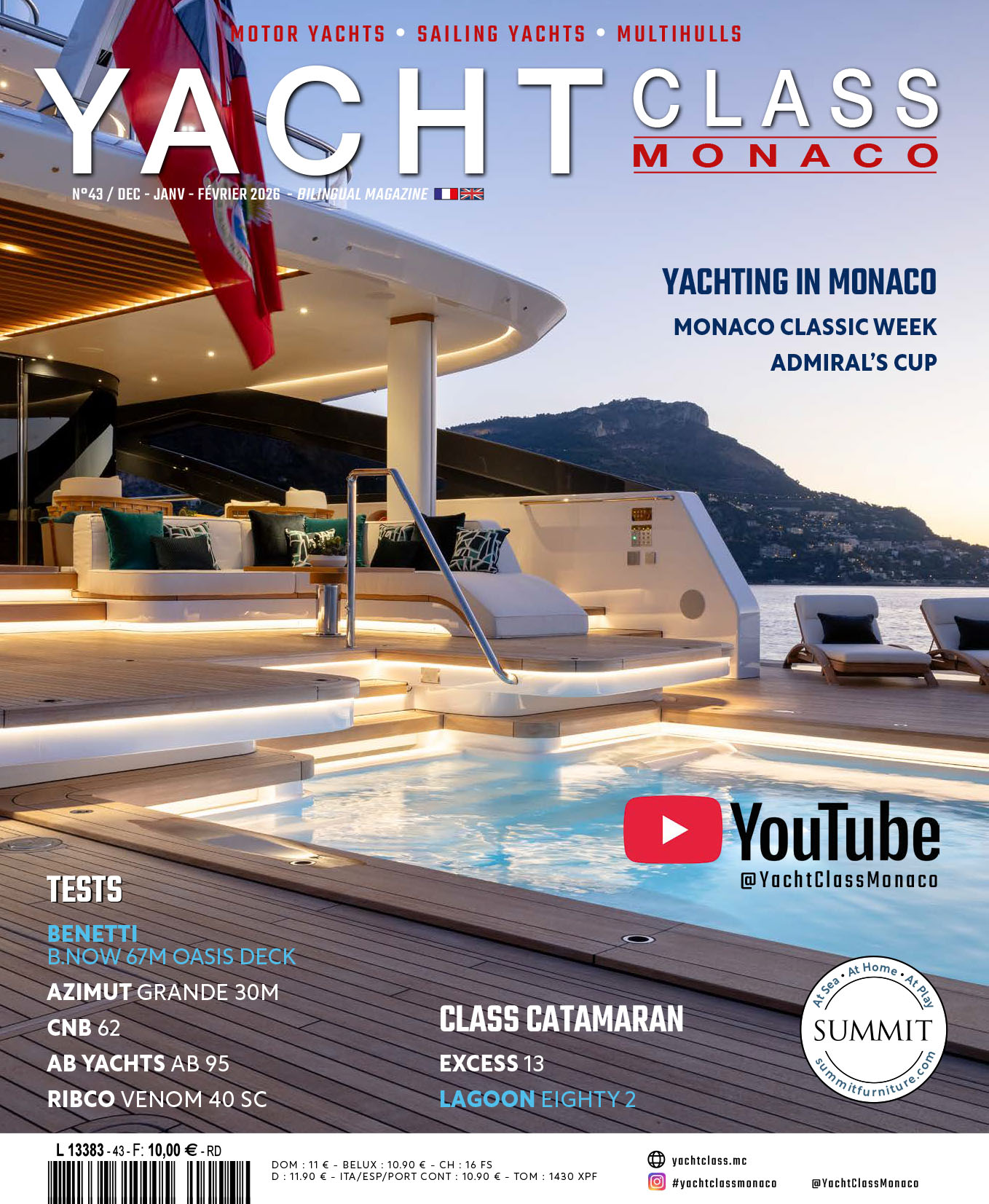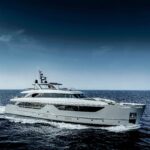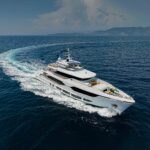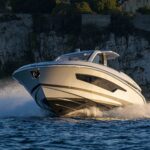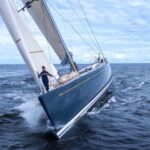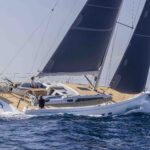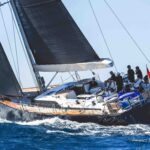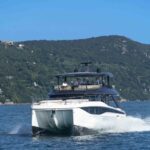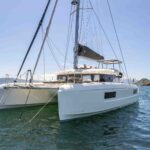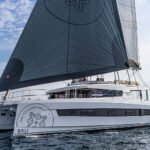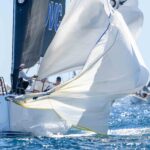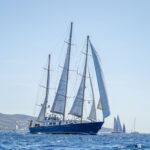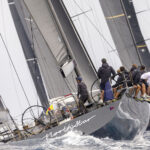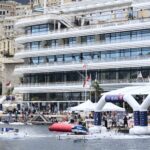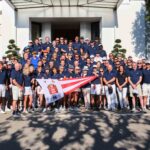YACHT CLASS n°38 (sept-oct-nov 2024)
Departure from the Yacht Club de Monaco
On Thursday 27th June, at the main pontoon of the Yacht Club de Monaco, Prince Albert II cast off the moorings of the catamaran LOVE THE OCEAN belonging to the sailor-explorer Yvan Griboval, who was embarking on the second edition of the OceanoScientific ADNe Mediterranean 2023-2030 Expeditions, as part of the BioDivMed Mission, initiated by the Rhône Méditerranée Corse Water Agency in collaboration with scientists from the UMR Marbec – University of Montpellier. Present in Monaco for the occasion, Professor David Mouillot, Scientific Director of this unprecedented campaign, explained to the Sovereign, in an aside on board LOVE THE OCEAN, that “to identify marine biodiversity species, there is now a reliable scientific method: the use of environmental DNA (eDNA) taken by filtering seawater using innovative procedures”. He also spoke to the audience about the encouraging results of the 2023 edition of this expedition, where Yvan Griboval and the OceanoScientific team collected no fewer than 104 eDNA samples at 52 sites out of the 700 samples for the BioDivMed 2023 Mission. “This was the first synchronised and standardised scientific census of coastal marine biodiversity from the Italian border to the Spanish border, all around Corsica, including ports and lagoons, as well as in the Pelagos area, the triangle between France, Corsica and Italy,” explained Professor Mouillot. “Never before, anywhere in the world, has such an inventory of living organisms been carried out, particularly on a fine spatial scale over so many sites. This is a major innovation that makes France the undisputed leader in the scientific inventory of marine macro-organisms and the observation of coastal marine biodiversity. It is a decision-making tool for preservation and conservation, and the start of long-term observation of nature”, he added. For his part, Yvan Griboval outlined the 2024-2030 ambitions of the OceanoScientific association: “With the LOVE THE OCEAN catamaran, which now enables us to sail with total energy autonomy, we have identified, under the scientific supervision of Professor David Mouillot, sixty ”Marine Biodiversity Sentinel Sites” along the Mediterranean coast from Menton to Banyuls-sur-Mer. We’ll be collecting samples of eDNA at the surface in these maritime zones, at depths of between 15 and 30 metres. As nature is constantly evolving, these repeated, comparable collections are essential for scientific observation of marine biodiversity; to help make decisions about its conservation and preservation; to provide scientific assistance to coastal fishermen in their efforts to achieve ”sustainable fishing for sustainable food”; to observe the spread of invasive species…”
